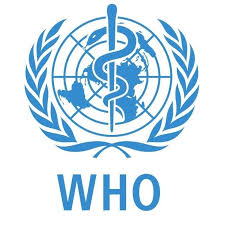Researchers at Oxford University have shown that a next-generation conjugate vaccine is “safe and effective” in preventing typhoid, and can be used to protect both children and adults.
Called Typbar-TCVR, it is the first-ever typhoid vaccine found safe and effective for children aged under two years.
It helped prevent more than half the cases of typhoid fever during study.
Results from the study could help the World Health Organisation decide on licensing—and potentially protecting more than 20 million people affected every year by typhoid.
The vaccine trial also showed Typbar-TCVR is expected to last longer and be more effective than existing vaccine.
Experts consider the longevity of immunity conferred by the vaccine to be especially positive for Africa.
“This new vaccine could be a real game changer in tackling a disease that disproportionately affects both poor people and children,” said Andrew Pollard, professor of paediatric infection and immunity at University of Oxford and director of the Oxford Vaccine Group.
“For the first time, we will be able to offer protection to children under two years of age, which will enable us to stem the tide of the disease in the countries where it claims the most lives.
“‘If we are going to make serious headway in tackling typhoid, we need to dramatically reduce the number of people suffering from and carrying the disease globally, which will in turn lead to fewer people being at risk of encountering the infection.”
Trialling
The study, funded by a grant from Bill & Melinda Gates Foundation, is published in the journal The Lancet.
For trial, researchers asked 112 participants—split into three groups—recruited from 1,500 volunteers to drink water containing the bacteria that causes typhoid.
A control group was given meningitis vaccine, which doesn’t prevent typhoid. A second group got existing typhoid vaccine. And the third group was given the new conjugate vaccine.
Researchers reviewed them daily over two weeks and diagnosed typhoid fever if any ran a temperature of 38oC for 12 hours.
More than 50% of the participants were protected from typhoid fever, the study found.
The clinical trial is the first to show that immunisation with the typhoid conjugate vaccine is safe, well tolerated and will have significant impact on disease incidence in typhoid endemic areas that introduce the vaccine.
Manufacturers of the vaccine, Bharat Biotech, has submitted the vaccine to the World Health Organisation for prequalification.
That means agencies like the United Nations Children’s Fund can procure the vaccine for use in low-resource settings.
Up to 20 million new infections with Salmonella Typhi—the microorganism that causes typhoid—occur each year.
At least 200,000 deaths are attributed to the disease every year, mainly in South Asia and Africa.
Typhoid is linked to poor sanitation and contaminated drinking water.
Symptoms of the disease range from fever, stomach pain, headache and constipation or diarrhea.
Most susceptible
Children are especially susceptible, but the currently licensed vaccines do not confer lasting immunity in children or they come in inappropriate format or both.
Last year, twin sisters Hussaina and Hassana succumbed to typhoid, four weeks apart, after the disease perforated their intestines.
They lived in Damangaza, an urban slum neigbhourhood of Nigeria’s capital Abuja—in dirty conditions, with little health care and no immunisation.
Travellers from developed countries can choose from two vaccines—Ty21a and Vi-PS—against typhoid.
Ty21a cannot be used for children under five years, and Vi-PS cannot be used for children under two.
A study by Lancet found the burden of typhoid to be nearly three times higher than previously thought in sub-Saharan Africa.
Researcher Simon Agwale co-authored a 2008 study that found burden of typhoid in Nigeria to be high, with associated serious complications, which in most cases have been managed effectively with the use of potent antibiotics and surgical intervention.
However, the typhoid problem has been compounded by the emergence and circulation of multi-drug resistant strains of the organism being sensitive only to the newer generation antibiotics, the study concluded.
But typhoid vaccine is not routine in Nigeria. The National Primary Health Care Development Agency, which coordinates immunisation and primary health care doesn’t include typhoid vaccine on its list.
It is uncertain how much of a priority a vaccine against typhoid could be.
“It is more than a priority,” Agwale tells Daily Trust.
“The two immediate causes of hospitalisation in Nigeria are typhoid and malaria. If you take typhoid out, you are talking about reducing hospitalisation by 20%.”
“Conjugate vaccines are some of the best available,” he says of the new vaccine.
“They induce long-lasting immunity and protect children, more than polysaccharide vaccines with [which] immunity wanes after three years, doesn’t protect children and efficacy is between 55 and 70%.”
By comparison, the Typbar-TCVR’s efficacy is calculated to be 87.1%.
It has been in use in private sector in India. Its potential use for infants is expected to come before the WHO’s Strategic Advisory Group of Experts meeting in October to recommend global use of the conjugate.
Field trials on a large scale of the vaccine would take years to yield results. But Oxford’s study presented evidence of efficacy more quickly to WHO ahead of its decision.
Source: Daily Trust News
ABUJA: Training Schedule for Basic Life Support BLS, Pediatric Advanced Life Support (PALS), Advanced Cardiovascular Life Support ACLS, First Aid, CPR, AED
PORTHARCOURT: Training Schedule for Basic Life Support BLS, Pediatric Advanced Life Support (PALS), Advanced Cardiovascular Life Support ACLS, First Aid, CPR, AED
LAGOS: Training Schedule for Basic Life Support BLS, Pediatric Advanced Life Support (PALS), Advanced Cardiovascular Life Support ACLS, First Aid, CPR, AED



